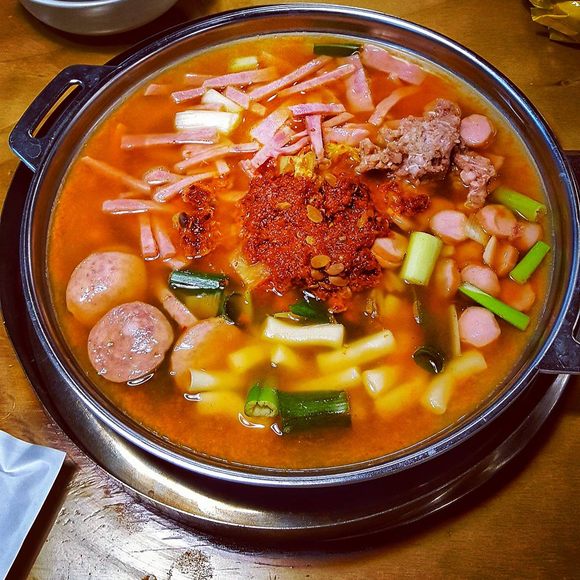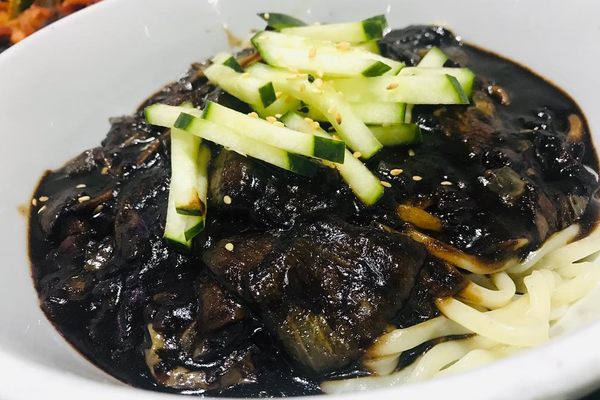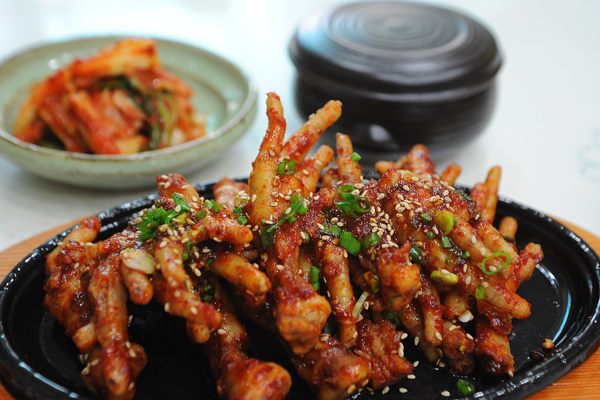One of South Korea’s most beloved fusion dishes began with desperate, wartime dumpster diving.
Described as both “a culinary travesty and an iconic symbol of U.S. imperialism” by sociologist Grace M. Cho, budae jjigae marries two disparate culinary traditions. This dish’s name translates to army base stew, as its contents are the product of wasteful American soldiers, acquired by resourceful South Koreans.
During the Korean War, citizens struggled with food scarcity, and stores rarely stocked meat. An hour north of South Korea’s capital, Seoul, a U.S. army base stocked with ample quantities of processed American food offered a creative solution to wartime shortages. Koreans lined up outside military mess halls to purchase the leftovers, which would otherwise be thrown out. Or they scavenged them from the trash. Finding cigarette butts and other inedible pieces of garbage among the contents was common.
Still, the leftovers were hearty, salty, and sustaining. Koreans supplemented their kimchi, garlic, vegetables, chili paste, and instant noodles with canned beans, processed cheese, Spam, hotdogs, and ham. The resulting stew was surprisingly cohesive—a spicy, filling medley of savory meat, cheese, and vegetables.
The meat shortage continued into the post-war era. The war destroyed factories and homes, and 10 percent of the Korean population was killed. Analysts compare the devastation to World War II. Among the hungry South Koreans who survived, many had developed a taste for budae jjigae. But South Korea’s autocratic government felt differently and passed import laws that prevented Koreans from buying American products.
This created a black market for army base stew ingredients. Retail stores for American soldiers stationed in Korea (known as “post exchanges”) became sites for illegal trading, facilitated by Korean women involved with American soldiers. Spam did not become legal until a Korean company began producing it in the 1980s. Nonetheless, processed meat was the only meat many people had access to, and demand remained high.
When the American product ban was lifted, budae jjigae evolved into a popular comfort food, rather than a means of survival. It’s now common on South Korean menus, particularly in college neighborhoods, and Spam is a popular gift. Today, fans of army base stew simply eat it because they like it; many don’t recall a time when its ingredients came from an army base’s trash heap.
Written By
 rachelrummel
rachelrummel
Sources
- mykoreankitchen.com/army-stew-budae-jjigae/
- www.theguardian.com/travel/2016/jun/19/south-korea-foodie-spam-stew-seoul
- contexts.org/articles/eating-military-base-stew/
- contexts.org/articles/eating-military-base-stew/
- www.bbc.com/news/world-asia-24140705
- apjjf.org/-Charles-K.-Armstrong/3460/article.html
- nationalinterest.org/blog/the-buzz/why-the-korean-war-was-one-the-deadliest-wars-modern-history-20445
- www.wsj.com/articles/SB10001424052748704240004575084711871268830
















